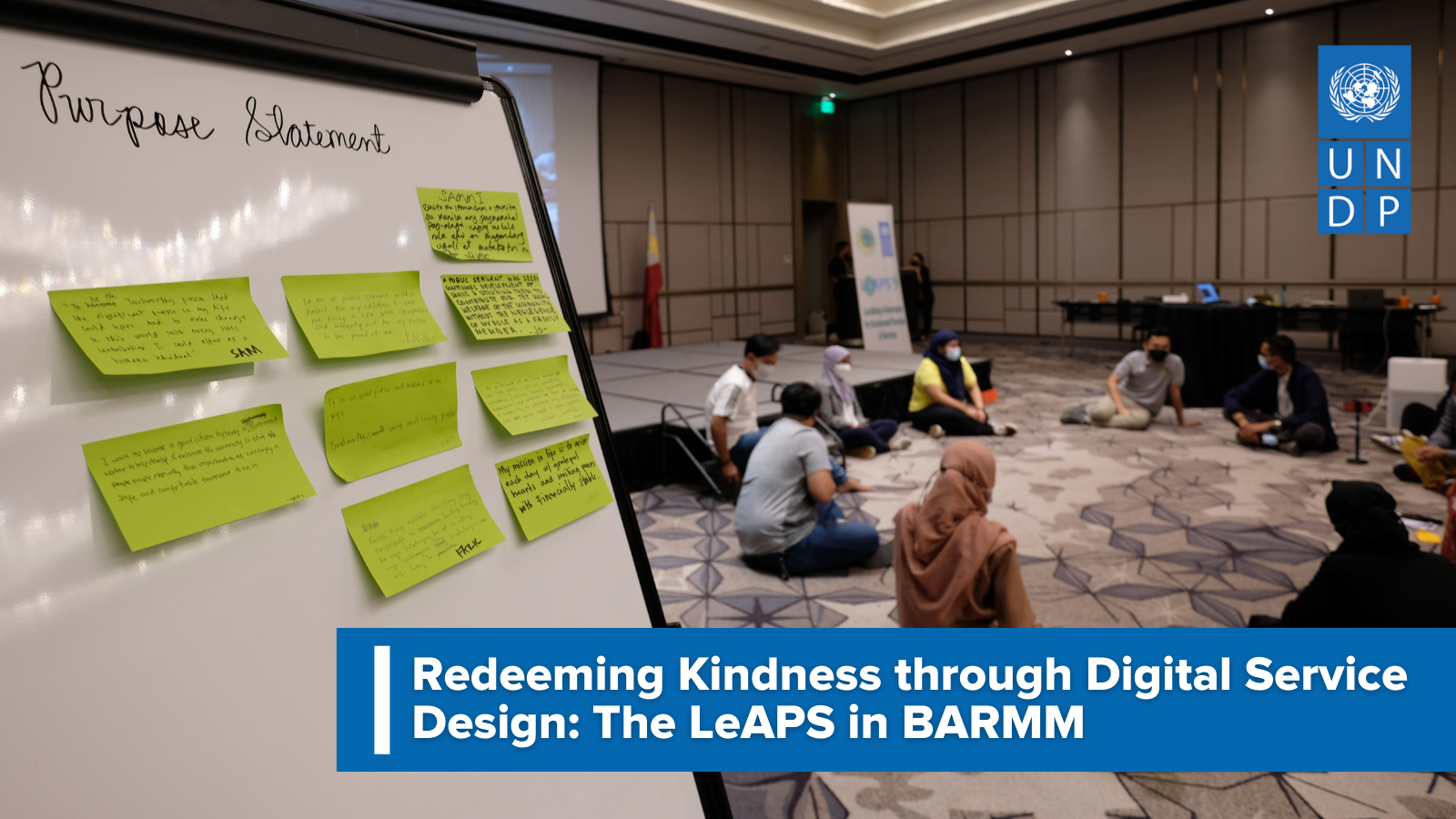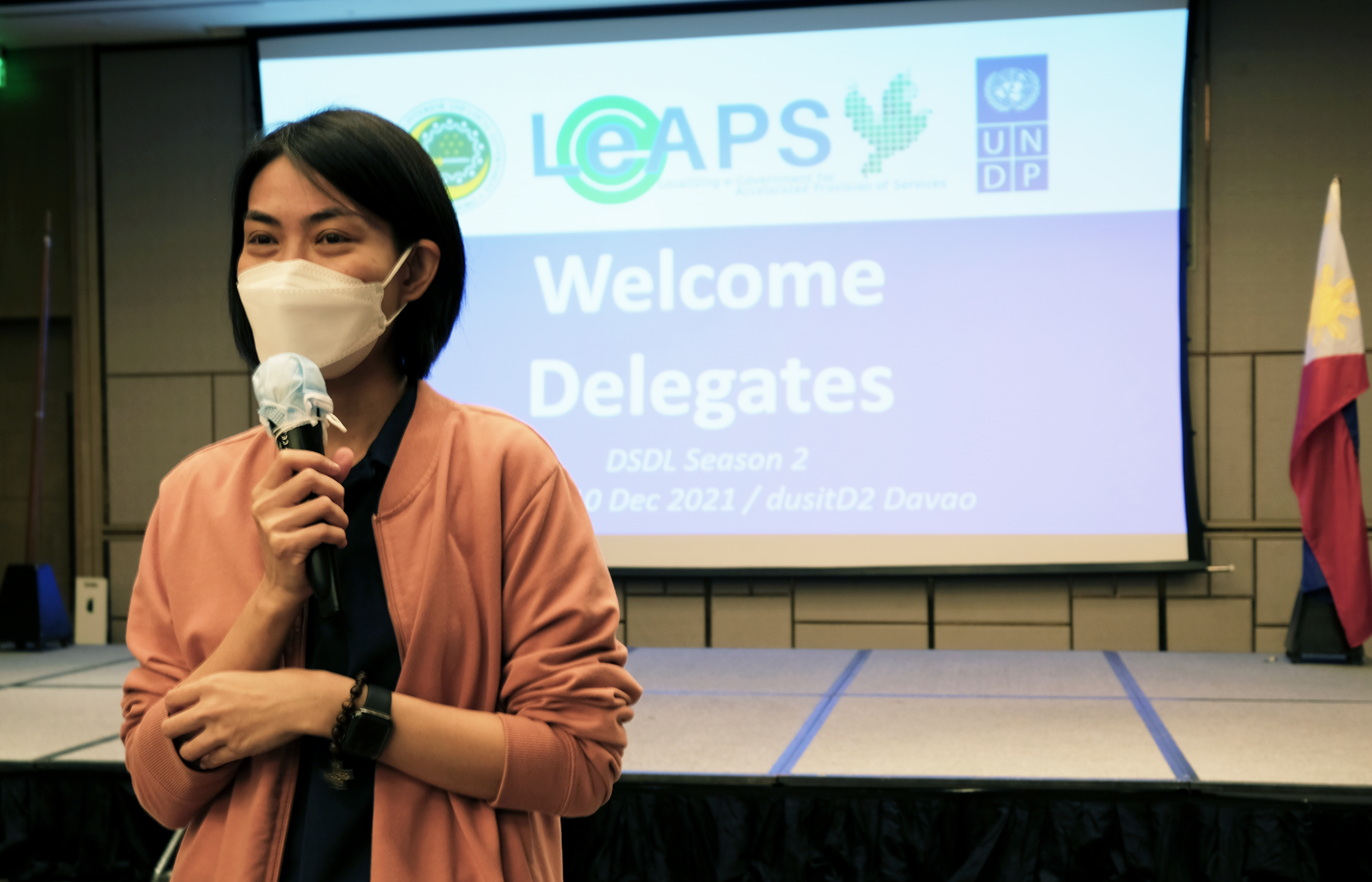By Marilyn Castino, Programme Analyst, Institutions and Partnerships Team
Redeeming Kindness through Digital Service Design: The LeAPS in BARMM
December 3, 2021
The COVID-19 pandemic has disrupted our daily routines and made some of us shift our gears, may it be on the personal or professional aspect of our lives. Governments across the globe had to rethink their strategies to cope up with the demands of the people especially during the height of the pandemic. To adapt and recover from the pandemic, many governments realized the importance of going digital. In the southern part of the Philippines, the recently established Bangsamoro Autonomous Region of Muslim Mindanao (BARMM) Government, through the Ministry of the Interior and Local Government (MILG), going digital has been an aspiration even before COVID-19 came into our lives.
The MILG recognizes the challenge of improving public service delivery in BARMM and to respond to substantial gaps, it forged a partnership with UNDP Philippines for the implementation of the Localizing e-Governance for Accelerated Provision of Services (LeAPS) Project. The LeAPS Project intends to harness the transformative power of data, digitalization, and people-centered governance to substantially improve the delivery of local public services for the Bangsamoro people.
As one of the enabling mechanisms to achieve a people-centered governance, the Digital Service Design Lab (DSDL) was launched as a component of the LeAPS Project, inspired by the UNDP Bangladesh – supported Access to Information (a2i) program. The DSDL aims to transform how local government units (LGUs) and ministries in BARMM deliver services and information to people with the help of digital channels. Through the DSDL the ambition is to bring humanity to the digital process and dignity to the service experience so that public services offered in BARMM are simple, efficient, seamless, desirable, and accessible especially for the marginalized and vulnerable sectors of the communities.
Malyn at the DSDL Training of Trainers
One of the unique features that DSDL offers is it allows BARMM civil servants to understand the processes involve in availing and provision of public service by putting themselves in the shoes of both the Service Receiver and Service Provider through an empathy journey. The empathy journey becomes an avenue to understand the needs, pain points and opportunities to help in the design and provision of services that are more meaningful and relevant. Using empathy as the foundation for service design, processes are then simplified and made into prototypes. Eventually these prototypes are translated into service blueprints which would become the basis for designing public e-services. These public e-services would be made available for the Bangsamoro people by accessing the #DigitalBangsamoro Portal or by visiting the Digital Centres located in the municipal halls in BARMM by 2022.
To date, the following service blueprints had been converted to prototype e-services when the Municipalities of Butig and Piagapo of Lanao del Sur had their first taste of the DSDL – (1) Application for Certificate of Live Birth; (2) Application for Business Permit. Meanwhile, the MILG had chosen the following services for simplification and digitization – (1) Issuance of Sanggunian Member/Barangay Eligibility Certification; (2) Application for Travel Authority. Before the year ends, five more LGUs and five BARMM ministries would have completed the DSDL, producing an additional ten simplified services, ready for digitization.
In parallel to re-designing public services in BARMM, a pool of service designers is also being capacitated and later, would be tapped for the eventual expansion of DSDL to accommodate more LGUs and BARMM ministries. The pool of service designers is also commendable for truly embracing this challenging, but exciting task and for appreciating what DSDL may contribute to improving local governance in BARMM.
Being able to participate in the DSDL runs and as a newbie public service designer, it is inspiring for me to note that the LGUs and BARMM ministries which have already completed DSDL, strongly affirms the importance of not only simplifying the steps to avail services, but it is equally important to consider the feelings, thoughts, and actions of all stakeholders involved in public service delivery. Indeed, kindness could and must be integrated into service delivery.
Some may think that MILG’s journey towards #DigitalBangsamoro is nothing fancy. Even some would say that digitalization is the new norm, so this initiative may be considered a business-as-usual. But for these government institutions in BARMM, embarking on digital governance is an innovative and courageous leap that they are taking on for the citizens, and for the future generations. It is still a long way to go but I am looking forward to when the #DigitalBangsamoro Portal is up and running and the Digital Centres are activated, loaded with public e-services which are designed by kindhearted Bangsamoro public service designers for the Bangsamoro people.
### ###

 Locations
Locations






